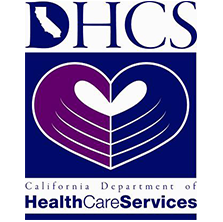Individuals who have experienced trauma and struggle with post-traumatic stress disorder encounter challenges every day. Fortunately, there are treatment programs specifically designed to help these people regain control of their symptoms and lead normal, healthy lives. Post-traumatic stress disorder is a serious condition that is debilitating to the lives of trauma victims.
What is PTSD?
Post-traumatic stress disorder, or PTSD, is a mental disorder that is caused by a traumatic experience. When an individual is suffering from PTSD, they are unable to cope or move forward from a traumatic event. Ultimately, the individual experiences a continuous cycle of reliving the experience or experiences.
PTSD impacts the brain and causes these perpetual flashbacks. Along with these flashbacks, individuals often experience reoccurring nightmares. This causes turmoil to the psyche, impacting the person both mentally and physically. The individual is constantly on the lookout for potential triggers and danger, which, along with the flashbacks, is a tremendous amount for the mind to process. This often leads to another key symptom of PTSD, known as dissociation.
Disassociation occurs when the mind closes itself off to emotional input in order to prevent traumatic flashbacks. A mental barrier is put up as a means of self-protection, however can cause issues down the road of recovery. PTSD treatment programs work with individuals who have developed dissociative tendencies to reconnect with past memories and emotions. Although it may be painful, this step is necessary in order for a person to face and recover from PTSD.
PTSD Treatment Programs
PTSD treatment programs work by allowing trauma victims to come to terms with their experience in a safe and healthy way. Treatment programs also cultivate individual techniques for people to cope with their flashbacks. Because trauma is a violation, the key for an effective trauma treatment program is maintaining the patient’s sense of safety and security. This is particularly difficult because at the same time, patients are tasked with facing these difficult memories.
There are different approaches to PTSD treatment based on the individual. For some, a more straightforward cognitive-behavioral approach is best. This treatment method involves a detailed assessment of the original trauma experience and its aftermath, as well as developing a structured plan that will assist patients with cope with triggering situations effectively.
For other individuals, a different treatment method is necessary. Some people enter treatment programs with complete incapability to speak about their trauma. In order to effectively get these patients to slowly explore their trauma, different therapeutic approaches are used. Different types of therapies allow patients to establish a new type of understanding of their past experiences.
An example of an alternative therapy method is eye movement desensitization and reprocessing (EMDR). EMDR is different from the more traditional approaches but still aims to intervene in the patient’s mental processing by creating new connections within the brain. This method targets the area of the brain where traumatic memories and associated emotions are stored.
Successful PTSD treatment programs recognize that there is no set treatment plan that works for all patients. No single type of therapy will work for all trauma victims, as each individual experiences and handles trauma differently. The best and most effective treatment programs offer a wide variety of treatment options and encourages patients to try different options to see what works for them.
PTSD Recovery
Life after treatment and beyond PTSD may be challenging, but it is up to individuals to take recovery into their own hands. Ultimately, a person must find the willingness and motivation within themselves to push through emotional treatment programs to overcome PTSD. With the true desire to prevail over PTSD and the resources available in a treatment program, recovery is possible.
It is not uncommon for PTSD to be a co-occurring disorder along with a number of other mental illnesses such as addiction, eating disorders, depression and anxiety. For this reason, when it comes to treatment, it is critical to take these co-occurring disorders into consideration in order to make a complete recovery.
Our mission at Safe Harbor Treatment Center is to target the source of PTSD as well as any other co-occurring disorders in order to effectively treat our patients. We understand the treatment and recovery process is different for everyone, and work to create an individualized approach. If you or someone you know is suffering from PTSD or any other co-occurring disorders, do not hesitate to contact us at (888) 541-3654
START YOUR JOURNEY WITH
SAFE HARBOR HOUSE
(888) 541-3654
Contact Us Today
Verify Your Insurance




